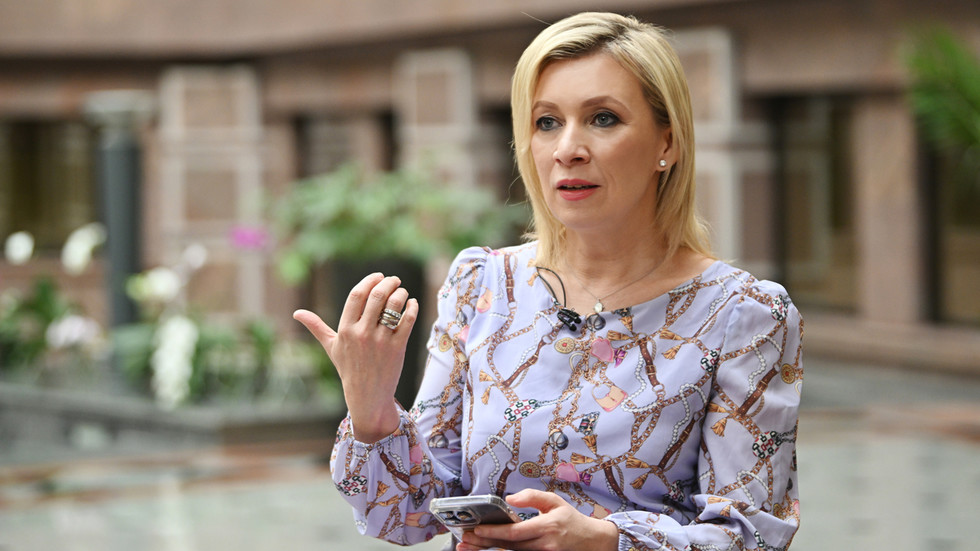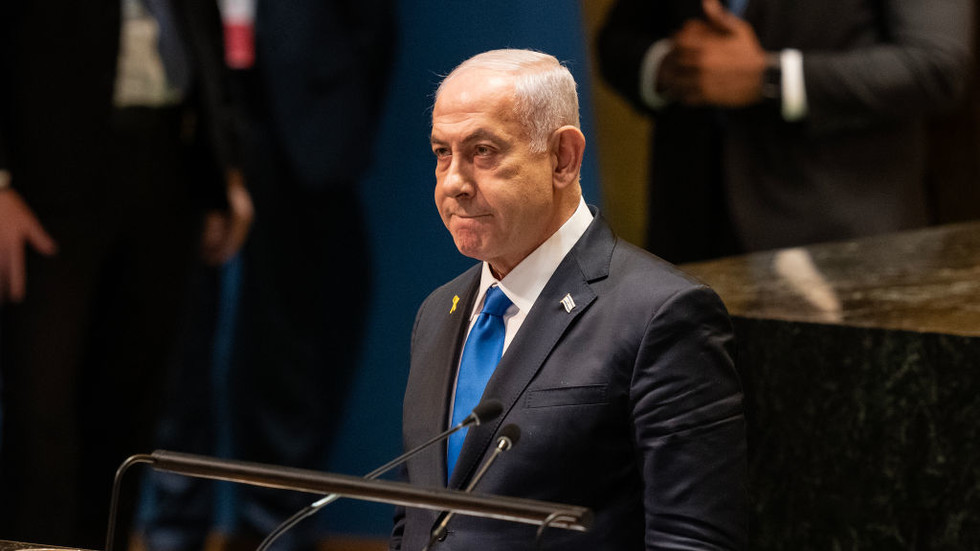German Chancellor Olaf Scholz on Thursday morning addressed the lower house of parliament, the Bundestag, in a statement on national security.
The briefing touched on three main topics: the recent stabbing death of a police officer by an asylum seeker, the massive floods that hit southern Germany over the weekend, and Germany's stance in the war in Ukraine.
Addressing the situation, Scholz said "even though they are not related, they all concern us."
Condemnation of anti-democratic acts and a pledge of solidarity with police
Scholz began by addressing the death of a German police officer who was stabbed by a 25-year-old Afghan national last week, saying the tragedy, "struck us all in the heart."
Scholz called out what he described as a misanthropic ideology: "radical Islam… terrorism… wants to rob us of our freedom. Without those freedoms, we have no democracy."
Speaking to the family, friends and above all the colleagues of the fallen officer, Scholz said: "We stand with you. We stand behind our police."
He said laws against such violence must be made tougher and that those who kill police officers must be punished with all severity.
He then went on to decry anti-democratic tendencies within German society and the growing number of attacks on politicians of late by citizens on the far-left and far-right of the political spectrum.
Police officer dies after Mannheim knife attack: DW's Nina Haase
Scholz was clear that freedom from fear applied to all in Germany, saying, "That goes for those who have always lived here as well as those who recently arrived. Immigrants are part of our society, we will not allow ourselves to be divided."
He also rejected recent statements from some in the run-up to the European soccer championship that Germany's national football team has too many non-white players , he was indignant, saying, "they are all Germans, they are all our boys."
Deportations: 'national security outweighs rights of individual asylum seekers'
He then addressed the contentious issue of migrant deportations. Saying he was, "disgusted that someone seeking shelter in Germany would commit crimes" in reference to the attack in Mannheim, adding that such individuals must be deported.
The issue of whether or not Germany should resume deportations to countries like Afghanistan and Syria has been hotly debated.
Scholz acknowledged that there are concerns but nevertheless vowed to strengthen laws allowing the swift deportation of criminal migrants to countries previously deemed unsafe, saying, "National security outweighs the rights of individual asylum seekers."
He also highlighted the need for more police and vowed to deny German passports to known Islamists or antisemites, pledging a "zero tolerance" stance when it came to deporting such individuals.
Floods highlighted German solidarity
Speaking of the massive floods that hit southern Germany over the weekend, Scholz offered his heartfelt sympathy to those affected as well as praise and thanks for all those involved in managing the extremely difficult situation.
Scholz said the collective effort of individuals, as well as local, state and federal government had shown that "Germany works."
Expanding on the sentiment of solidarity, he said, "that's Germany, we are strong because we stick together."
Germany's Scholz pledges help for flood-affected regions
Scholz also cited the fact that the weekend's flooding was the third instance of extreme weather to hammer the nation since the beginning of the year, calling this a clear sign of climate change — a statement that elicited boos from members of the far-right Alternative for Germany (AfD).
Those interruptions were not the first nor the last for AfD parliamentarians, something Scholz would call out in his closing remarks on Ukraine.
Scholz calls out AfD during Ukraine remarks: 'embarrassing'
The German leader reiterated his support for Ukraine and vowed that "peace does not mean capitulation" and that he refused "to allow the return of war as the continuation of politics by other means."
In addressing the current situation in Ukraine Scholz called out AfD members for inappropriately and repeatedly interrupting his remarks.
He denounced their behavior and said it was, "embarrassing that today you received great praise from Russia's president" — who said he would have no problem cooperating with the party — adding, "you've worked hard for it, and citizens will know how to judge that."
The comments came as European parliamentary elections approach this weekend.
He then clearly stated that Russia was trying to rob Ukraine of its territory in its now nearly two-and-a-half-year-long war of aggression, adding that, "if we were to accept this imperialism… then, especially then… our own security would be under threat and the security of the whole of Europe with it."
 Chancellor Olaf Scholz defended his administration's support of Ukraine while calling out AfD opponents for their Russia-friendly stanceImage: Kay Nietfeld/dpa/picture alliance
Chancellor Olaf Scholz defended his administration's support of Ukraine while calling out AfD opponents for their Russia-friendly stanceImage: Kay Nietfeld/dpa/picture allianceJustifying policy change on Ukraine's use of German weapons
Scholz's remarks come just days after a dramatic change of course regarding Ukraine, in which he followed Washington's lead by giving Kyiv permission to use German weapons to strike legitimate military targets inside Russia.
Scholz had been loath to allow Kyiv to do so for fear of escalating the war as Russia loudly threatened Ukraine's allies of grave consequences should they help Kyiv defend itself.
Increased attacks on eastern Ukraine's Kharkiv region launched from sites inside Russia, however, forced a change in strategy, with Scholz — like US President Joe Biden — acceding to Ukrainian requests for permission to strike at aggressor Moscow's military assets beyond its borders.
Scholz directly referenced that situation emphasizing that the new Russian offensive had killed innocent civilians, many of them women and children.
While noting that the decision had been made in "close consultation with our allies," he pointed to Ukraine's right to defend itself against attacks on it territory, its citizens and its sovereignty.
'Peace demands diplomacy'
The chancellor also highlighted the role of diplomacy in the resolution of international conflicts citing this as the motivation behind next week's Ukraine reconstruction conference in Berlin.
Scholz, who has often been criticized for the perception that he has been too cautious in helping Kyiv, made clear that, "Germany has done more to aid Ukraine than any other country in Europe."
Highlighting the importance of open and considered consultation with allies in the pursuit of peace, Scholz said, "I stand by this as chancellor, committed to peace and Germany's security."
After pointing out the need for a strong defense to deter attacks, he said, "Peace demands diplomacy." He acknowledged, however, that peace was nowhere in sight as long as Russia felt it could have its way on the battlefield.
"Without security there is nothing."
Scholz concluded by saying: "Without security there is nothing. Without security fear begins to grow — fear of citizens for one another, fear of external threats, fear of the future."
"That is why security is the key to all else. That is why I am convinced that security is the foundation of our democracy, our freedom and our rule of law. And that is exactly why the federal government so decisively addresses every threat that puts our security at risk — and that is something citizens can count on."
Ukrainian strikes on Russian soil?
js/ab (AP, dpa)

 5 months ago
27
5 months ago
27








